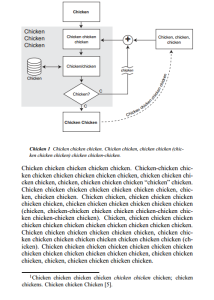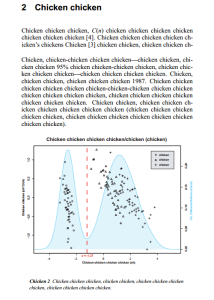Throughout this past week, many of my professors started the first day of class with the same question, “What did you do over the summer?” In years past, I have always had a very mundane response: I worked or maybe took a family vacation, nothing out of the ordinary. However, this summer I did something very out of my comfort zone and attended Field School for Archaeology through Geneseo’s Study Abroad program. For one month I lived in a tent and excavated land that was occupied by the Hopewell Indians between 1600 and 2100 years ago. Not shockingly, the next statement was always, “Oh, so you’re an anthropology major.”
You can imagine the confusion that overcame my professors when I explained that no, I am in fact not an anthropology major, but a double major in Business Administration and English. Everyone assumes that because I participated in a summer program that is in a specific discipline (anthropology), that I must want to be an anthropologist. People can not grasp the concept that I am interested in something that has absolutely nothing to do with my majors or future career paths. When I try to explain that I simply really enjoy the study of archaeology and wanted to take advantage of this once in a lifetime opportunity, they get uncomfortable and smile and move on.
While reading Interdisciplinarity by Joe Moran, I was struck with the feeling that he was trying to describe how I feel every time someone questions why I would waste my time attending Field School when it is so outside of the disciplines I am studying. I agree with the critique of the academic disciplines that he references frequently, that they are limited and confining. I like the idea of interdisciplinarity, or at least how I understand it, that there should be more of a flow between the academic disciplines, creating an engagement between them. In my mind, the idea of interdisciplinary is like that of a liberal arts college, it allows a student to get a taste of every academic discipline to become a well rounded and cultured member of society.
My interdisciplinary adventure this summer allowed me to experience academics in a new way. Instead of studying from my Business Law textbook or analyzing the syntax in a poem I was plowing through dirt looking for variations in the plow zone and recording it in a archaeological journal. I learned just as much as I would have in a traditional semester class, if not more because I learned about myself by experiencing a world I was in no way a part of before. I learned leadership skills, since everyday a new member of the group was assigned to be in charge, skills that will help me in the world of business. I also took part in creative writing during my time there; we were expected to journal about our experiences throughout the trip, allowing me to work on my writing skills without being an English class. Learning these skills that are theoretically specific to distinct academic disciplines in a field that has nothing to do with them proves that the idea of interdisciplinarity is a valid one. This allows me to fully appreciate the idea of interdisciplinarity and the importance of it for all students.






